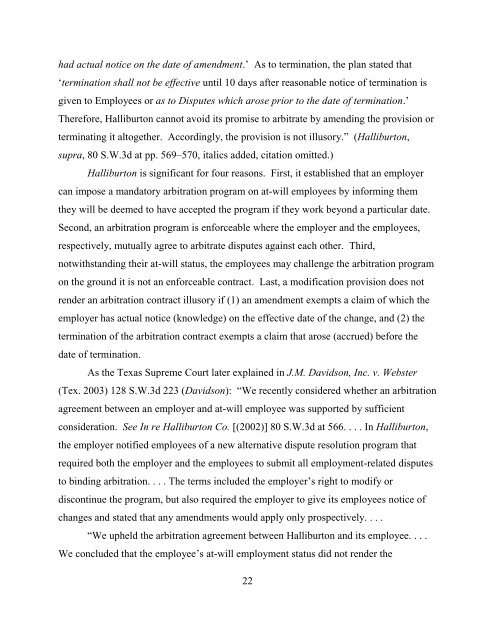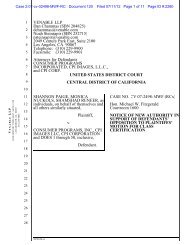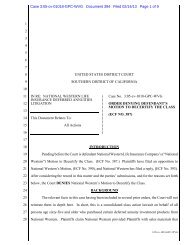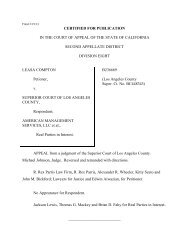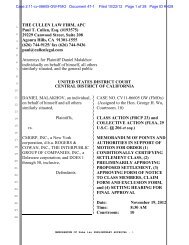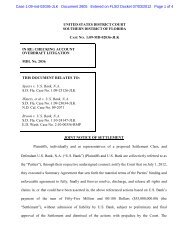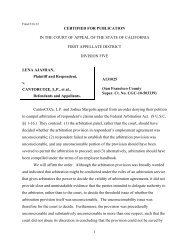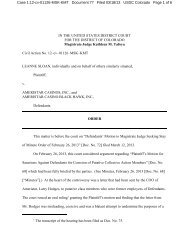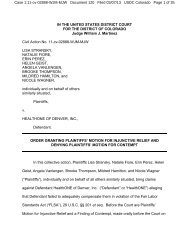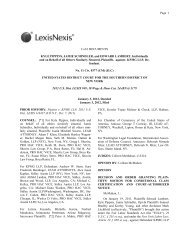here - FindLaw
here - FindLaw
here - FindLaw
You also want an ePaper? Increase the reach of your titles
YUMPU automatically turns print PDFs into web optimized ePapers that Google loves.
had actual notice on the date of amendment.‘ As to termination, the plan stated that<br />
‗termination shall not be effective until 10 days after reasonable notice of termination is<br />
given to Employees or as to Disputes which arose prior to the date of termination.‘<br />
T<strong>here</strong>fore, Halliburton cannot avoid its promise to arbitrate by amending the provision or<br />
terminating it altogether. Accordingly, the provision is not illusory.‖ (Halliburton,<br />
supra, 80 S.W.3d at pp. 569–570, italics added, citation omitted.)<br />
Halliburton is significant for four reasons. First, it established that an employer<br />
can impose a mandatory arbitration program on at-will employees by informing them<br />
they will be deemed to have accepted the program if they work beyond a particular date.<br />
Second, an arbitration program is enforceable w<strong>here</strong> the employer and the employees,<br />
respectively, mutually agree to arbitrate disputes against each other. Third,<br />
notwithstanding their at-will status, the employees may challenge the arbitration program<br />
on the ground it is not an enforceable contract. Last, a modification provision does not<br />
render an arbitration contract illusory if (1) an amendment exempts a claim of which the<br />
employer has actual notice (knowledge) on the effective date of the change, and (2) the<br />
termination of the arbitration contract exempts a claim that arose (accrued) before the<br />
date of termination.<br />
As the Texas Supreme Court later explained in J.M. Davidson, Inc. v. Webster<br />
(Tex. 2003) 128 S.W.3d 223 (Davidson): ―We recently considered whether an arbitration<br />
agreement between an employer and at-will employee was supported by sufficient<br />
consideration. See In re Halliburton Co. [(2002)] 80 S.W.3d at 566. . . . In Halliburton,<br />
the employer notified employees of a new alternative dispute resolution program that<br />
required both the employer and the employees to submit all employment-related disputes<br />
to binding arbitration. . . . The terms included the employer‘s right to modify or<br />
discontinue the program, but also required the employer to give its employees notice of<br />
changes and stated that any amendments would apply only prospectively. . . .<br />
―We upheld the arbitration agreement between Halliburton and its employee. . . .<br />
We concluded that the employee‘s at-will employment status did not render the<br />
22


